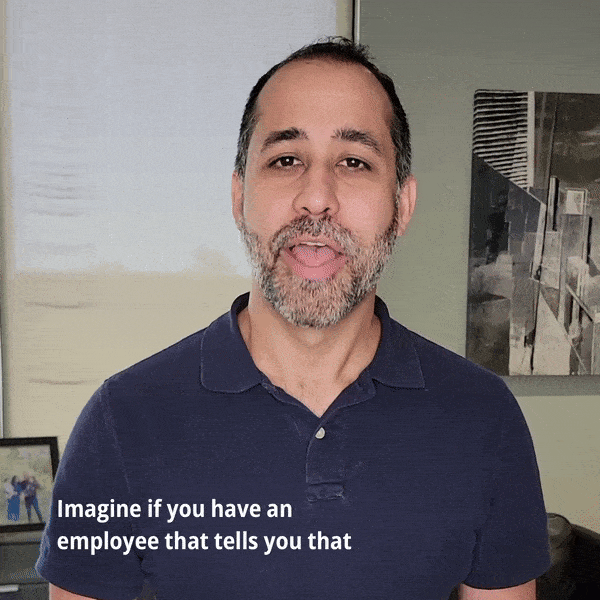Happy New Year! Last year was a big one for changes in employment related law in California, and many of these changes have an effective date of January 1, 2015. We covered some of these before in other blog posts, but here is a reminder of the more significant ones. We have also added a heads-up for the few that flew under the radar.
Affordable Care Act Employer Mandate
This has been so long in coming that some employers may have forgotten about it. Some of the small employer provisions have yet to take effect.
On January 1, 2015 companies with 50 or more full time workers must provide health insurance to at least 70 percent of their employees in order to avoid a fine, termed the “employer shared responsibility mandate.” There are alternative ways to calculate the penalty based on whether coverage is not offered to eligible employees or coverage is offered, but it fails to meet minimum standards.
Mandates for smaller businesses will roll out on January 1, 2016, but the details of how employees are counted can be tricky for the employer with many part time employees because the law counts their hours to determine” full time equivalents”. In theory, therefore, an employer with two full time employees and 100 part timers could find that it is a large employer required to provide coverage for the two full time employees this year in order to avoid the fine.
Paid Sick Leave
Beginning on July 1, 2015, all California employers, regardless of size, must provide at least three paid sick days per year to employees, including temporary and part time workers. This also includes public sector employers.
The law requires sick leave for any employee who worked in California for 30 days, at an accrual rate of one hour for every 30 hours worked. Employers may cap the accrual of paid sick days at 48 hours or 6 days per year and cap the use of those days to 24 hours or 3 days per year.
Employees may carry over unused sick days into the next year. The days need not be paid out on termination, but an employer must restore unused days if a terminated employee is reinstated within 12 months.
A penalty of $100 per violation, up to an aggregate of $4,000 may be assessed. The law also adds or amends several sections to the Labor Code, including recordkeeping, notice, and workplace poster requirements.
Minimum Wage Changes
Although California’s minimum wage has not changed since July 1, 2014 and will not change again until January 1, 2016, many California cities have enacted higher minimums. Some took effect on January 1 and others will roll out later in the year. Many of these minimums are also scheduled to increase on an annual basis in years to come.
- On January 1, 2015, San Diego’s minimum wage rose from $9.00 to $9.75 per hour.
- On the same day, San Francisco’s minimum wage for employees who work at least two hours a week rose to $11.05 per hour. On May 1, 2015 it will rise again to $12.25 per hour.
- San Jose’s minimum wage jumped from $10.15 to $10.30 per hour on January 1, 2015 based on a cost of living increase.
- Richmond, California’s minimum wage went from $8.00 per hour to $9.60 on January 1, 2015, the highest in California to date.
- Effective March 2, 2015, the minimum wage in Oakland, California will exceed even Richmond’s, jumping to $12.25 per hour and on the basis of cost of living increases in subsequent years.
The increase in the minimum wage may also affect whether non-minimum wage workers, including inside commissioned salespeople, may now be entitled to payment for overtime, even though they had not been in the past.
Beginning January 1, 2015, federal contractors in California must pay a minimum wage of $10.10 per hour. This provision is the product of an executive order issued by President Obama mid-2014, prior to some of the other state minimum wage law increases. Those state laws will govern when the minimum increases to more than $10.10.
The federal contractor minimum wage applies to procurement contracts for services or construction; contracts covered by the Service Contract Act; concessions contracts; and contracts in connection with federal property or lands.
Discrimination Protection for Volunteers and Interns
Effective January 1, 2015, California Assembly Bill 1443 protects volunteers and unpaid interns from harassment and discrimination in employment under the Fair Employment and Housing Act. It had previously not been clear that unpaid workers were protected under the provisions of FEHA.
The law specifically protects volunteers and interns from discrimination and harassment in recruitment, selection, training and retention by employers and other covered entities. Discrimination is prohibited on the basis of a long list of characteristics, including:
- race,
- religious creed,
- color,
- national origin,
- ancestry,
- physical disability,
- mental disability,
- medical condition,
- genetic information,
- marital status,
- sex,
- gender,
- gender identity,
- gender expression,
- age,
- sexual orientation or
- military and veteran status.
The law also extends accommodation requirements to both apprentices and unpaid interns.
Discrimination Protection for Undocumented Persons
California Assembly Bill 1660 protects holders of the special category of driver’s licenses issued to undocumented individuals (sometimes called “AB 60 driver’s licenses”) from discrimination in employment. Those licenses were first issued on January 1, 2015. The law effectively defines discriminatory action on the basis of an AB 60 driver’s license as a form of “national origin” discrimination.
Actions taken by an employer to comply with federal I-9 verification requirements do not violate the provisions of Assembly Bill 1660. Any driver’s license information obtained by the employer must also be treated as private and confidential.
Discrimination Protection for Employees Enrolled in Medi-Cal
California Assembly Bill 1792 protects employees who are enrolled in Medi-Cal from discrimination in employment and retaliation. The provisions of the law are particularly directed at large employers who employ many low wage workers.
Specifically, an employer who employs more than 100 people who are Medi-Cal beneficiaries may not:
- Discharge, discriminate or retaliate against that employee,
- Refuse to hire a beneficiary of Medi-Cal, or
- Disclose to any person that the employee receives Medi-Cal, unless authorized by state or federal law.
Perhaps more pointedly, the law also requires state agencies to prepare what is essentially a “public shame list” of the top 500 employers with the highest number of employees enrolled in Medi-Cal. The list will be prepared and made public beginning in January 2016 and continuing through 2020.
Abusive Conduct Training
California Assembly Bill 2053 requires employers of 50 or more employees to include information on the prevention of “abusive conduct” in the mandatory sexual harassment prevention training beginning on January 1, 2015.
The law defines “abusive conduct” to mean malicious conduct by either an employer or fellow employee within the workplace that a reasonable person would find hostile, offensive, and unrelated to an employer’s legitimate business interests.
Abusive conduct may include repeated infliction of verbal abuse, including derogatory remarks, insults, and epithets, or verbal or physical conduct that a reasonable person would find threatening, intimidating, or humiliating. It also includes the gratuitous sabotage or undermining of a person’s work performance.
Note that the law does not prohibit the abusive conduct, per se, although other statutes may. It requires training in an effort to prevent it. This is yet another approach, perhaps, to the problem of the brilliant office jerk, whose work is great, but whose behavior is unbearable.
Liability for Misclassification of Employees by Labor Contractors
As of January 1, 2015, California Assembly Bill 1897, makes employers jointly liable for payment of wages to workers supplied by an independent labor contractor if that labor contractor misclassifies those employees as independent contractors themselves, thus avoiding payment of overtime or workers compensation premiums.
Employers who use staffing and recruiting firms thus may find themselves at risk of paying for the misdeeds of the staffing agency.
It is not entirely clear what practical steps the client employer should take to investigate the employment status of employees, especially temporary employees who come through an agency. Where those workers are paid as independent contractors by the staffing agency, some additional due diligence is clearly necessary. This is yet another situation where an employer can find him or herself liable for the actions of an independent contractor.
Statute of Limitations for Liquidated Damages Claims
California Assembly Bill 2074 amends the Labor Code effective as of January 1, 2015 to clarify that if an employee seeks liquidated damages for the employer’s failure to pay the minimum wage, the statute of limitations will run for three years from the date payment was due.
The existing provisions of the Labor Code specify that liquidated damages will be calculated as the unpaid amount due plus interest at ten percent. Recent case law had muddied the waters about the length of the statute of limitations, and the bill was intended to clarify the issue.
California law is generally very protective of the rights of employees, and the legal changes effective at the beginning of 2015 may increase an employer’s legal compliance obligations.
Fortunately most of them are adjustments to existing law, rather than entirely new areas of compliance. Nonetheless, human resources departments should work closely with business legal counsel, especially at the beginning of the year to ensure that employers are on top of new requirements.


![Return to the Office vs. Remote: What Can Employers Legally Enforce? [e321]](https://www.pashalaw.com/wp-content/uploads/2023/01/Pasha_LSSB_321_banner-1024x723.jpg)









![Law in the Digital Age: Exploring the Legal Intricacies of Artificial Intelligence [e323]](https://www.pashalaw.com/wp-content/uploads/2023/11/WhatsApp-Image-2023-11-21-at-13.24.49_4a326c9e-300x212.jpg)
![Unraveling the Workforce: Navigating the Aftermath of Mass Layoffs [e322]](https://www.pashalaw.com/wp-content/uploads/2023/07/Untitled-design-23-300x212.png)
![Return to the Office vs. Remote: What Can Employers Legally Enforce? [e321]](https://www.pashalaw.com/wp-content/uploads/2023/01/Pasha_LSSB_321_banner-300x212.jpg)
![Explaining the Hans Niemann Chess Lawsuit v. Magnus Carlsen [e320]](https://www.pashalaw.com/wp-content/uploads/2022/10/LAWYER-EXPLAINS-7-300x169.png)
![California v. Texas: Which is Better for Business? [313]](https://www.pashalaw.com/wp-content/uploads/2021/07/Pasha_LSSB_CaliforniaVSTexas-300x212.jpg)
![Buyers vs. Sellers: Negotiating Mergers & Acquisitions [e319]](https://www.pashalaw.com/wp-content/uploads/2022/06/Pasha_LSSB_BuyersVsSellers_banner-300x212.jpg)
![Employers vs. Employees: When Are Employment Restrictions Fair? [e318]](https://www.pashalaw.com/wp-content/uploads/2022/05/Pasha_LSSB_EmployeesVsEmployers_banner-1-300x212.jpg)
![Vaccine Mandates Supreme Court Rulings [E317]](https://www.pashalaw.com/wp-content/uploads/2022/02/WhatsApp-Image-2022-02-11-at-4.10.32-PM-300x212.jpeg)
![Business of Healthcare [e316]](https://www.pashalaw.com/wp-content/uploads/2021/11/Pasha_LSSB_BusinessofHealthcare_banner-300x212.jpg)
![Social Media and the Law [e315]](https://www.pashalaw.com/wp-content/uploads/2021/10/WhatsApp-Image-2021-10-06-at-1.43.08-PM-300x212.jpeg)
![Defining NDA Boundaries: When does it go too far? [e314]](https://www.pashalaw.com/wp-content/uploads/2021/09/Pasha_LSSB_NDA_WordPress-2-300x212.jpg)
![More Than a Mistake: Business Blunders to Avoid [312] Top Five Business Blunders](https://www.pashalaw.com/wp-content/uploads/2021/06/Pasha_LSSB_Blunders_WP-1-300x212.jpg)
![Is There a Right Way to Fire an Employee? We Ask the Experts [311]](https://www.pashalaw.com/wp-content/uploads/2021/02/Pasha_LSSB_FireAnEmployee_Website-300x200.jpg)
![The New Frontier: Navigating Business Law During a Pandemic [310]](https://www.pashalaw.com/wp-content/uploads/2020/12/Pasha_LSSB_Epidsode308_Covid_Web-1-300x200.jpg)
![Wrap Up | Behind the Buy [8/8] [309]](https://www.pashalaw.com/wp-content/uploads/2020/11/Pasha_BehindTheBuy_Episode8-300x200.jpg)
![Is it all over? | Behind the Buy [7/8] [308]](https://www.pashalaw.com/wp-content/uploads/2020/09/iStock-1153248856-overlay-scaled-300x200.jpg)
![Fight for Your [Trademark] Rights | Behind the Buy [6/8] [307]](https://www.pashalaw.com/wp-content/uploads/2020/07/Fight-for-your-trademark-right-300x200.jpg)
![They Let It Slip | Behind the Buy [5/8] [306]](https://www.pashalaw.com/wp-content/uploads/2020/06/Behind-the-buy-they-let-it-slip-300x200.jpg)
![Mo’ Investigation Mo’ Problems | Behind the Buy [4/8] [305]](https://www.pashalaw.com/wp-content/uploads/2020/05/interrobang-1-scaled-300x200.jpg)
![Broker or Joker | Behind the Buy [3/8] [304] Behind the buy - Broker or Joker](https://www.pashalaw.com/wp-content/uploads/2020/04/Joker-or-Broker-1-300x185.jpg)
![Intentions Are Nothing Without a Signature | Behind the Buy [2/8] [303]](https://www.pashalaw.com/wp-content/uploads/2020/04/intentions-are-nothing-without-a-signature-300x185.jpg)
![From First Steps to Final Signatures | Behind the Buy [1/8] [302]](https://www.pashalaw.com/wp-content/uploads/2020/04/first-steps-to-final-signatures-300x185.jpg)
![The Dark-side of GrubHub’s (and others’) Relationship with Restaurants [e301]](https://www.pashalaw.com/wp-content/uploads/2015/04/When-Competition-Goes-Too-Far-Ice-Cream-Truck-Edition-300x201.jpg)
![Ultimate Legal Breakdown of Internet Law & the Subscription Business Model [e300]](https://www.pashalaw.com/wp-content/uploads/2019/05/Ultimate-Legal-Breakdown-of-Internet-Law-the-Subscription-Business-Model-300x196.jpg)
![Why the Business Buying Process is Like a Wedding?: A Legal Guide [e299]](https://www.pashalaw.com/wp-content/uploads/2019/03/futura-300x169.jpg)
![Will Crowdfunding and General Solicitation Change How Companies Raise Capital? [e298]](https://www.pashalaw.com/wp-content/uploads/2018/11/Will-Crowdfunding-and-General-Solicitation-Change-How-Companies-Raise-Capital-300x159.jpg)
![Pirates, Pilots, and Passwords: Flight Sim Labs Navigates Legal Issues (w/ Marc Hoag as Guest) [e297]](https://www.pashalaw.com/wp-content/uploads/2018/07/flight-sim-labs-300x159.jpg)
![Facebook, Zuckerberg, and the Data Privacy Dilemma [e296] User data, data breach photo by Pete Souza)](https://www.pashalaw.com/wp-content/uploads/2018/04/data-300x159.jpg)
![What To Do When Your Business Is Raided By ICE [e295] I.C.E Raids business](https://www.pashalaw.com/wp-content/uploads/2018/02/ice-cover-300x159.jpg)
![General Contractors & Subcontractors in California – What you need to know [e294]](https://www.pashalaw.com/wp-content/uploads/2018/01/iStock-666960952-300x200.jpg)
![Mattress Giants v. Sleepoplis: The War On Getting You To Bed [e293]](https://www.pashalaw.com/wp-content/uploads/2017/12/sleepopolis-300x159.jpg)
![The Harassment Watershed [e292]](https://www.pashalaw.com/wp-content/uploads/2017/12/me-2-300x219.jpg)
![Investing and Immigrating to the United States: The EB-5 Green Card [e291]](https://www.pashalaw.com/wp-content/uploads/2012/12/eb-5-investment-visa-program-300x159.jpg)
![Responding to a Government Requests (Inquiries, Warrants, etc.) [e290] How to respond to government requests, inquiries, warrants and investigation](https://www.pashalaw.com/wp-content/uploads/2017/10/iStock_57303576_LARGE-300x200.jpg)
![Ultimate Legal Breakdown: Employee Dress Codes [e289]](https://www.pashalaw.com/wp-content/uploads/2017/08/Ultimate-Legal-Breakdown-Template-1-300x159.jpg)
![Ultimate Legal Breakdown: Negative Online Reviews [e288]](https://www.pashalaw.com/wp-content/uploads/2017/06/Ultimate-Legal-Breakdown-Online-Reviews-1-300x159.jpg)
![Ultimate Legal Breakdown: Social Media Marketing [e287]](https://www.pashalaw.com/wp-content/uploads/2017/06/ultimate-legal-breakdown-social-media-marketing-blur-300x159.jpg)
![Ultimate Legal Breakdown: Subscription Box Businesses [e286]](https://www.pashalaw.com/wp-content/uploads/2017/03/ultimate-legal-breakdown-subscription-box-services-pasha-law-2-300x159.jpg)
![Can Companies Protect Against Foreseeable Misuse of Apps [e285]](https://www.pashalaw.com/wp-content/uploads/2017/01/iStock-505291242-300x176.jpg)
![When Using Celebrity Deaths for Brand Promotion Crosses the Line [e284]](https://www.pashalaw.com/wp-content/uploads/2017/01/celbrity-300x159.png)
![Are Employers Liable When Employees Are Accused of Racism? [e283] Racist Employee](https://www.pashalaw.com/wp-content/uploads/2016/12/Are-employers-liable-when-an-employees-are-accused-of-racism-300x159.jpg)
![How Businesses Should Handle Unpaid Bills from Clients [e282] What to do when a client won't pay.](https://www.pashalaw.com/wp-content/uploads/2016/12/How-Businesses-Should-Handle-Unpaid-Bills-to-Clients-300x159.png)
![Can Employers Implement English Only Policies Without Discriminating? [e281]](https://www.pashalaw.com/wp-content/uploads/2016/11/Can-Employers-Impliment-English-Only-Policies-Without-Discriminating-300x159.jpg)
![Why You May No Longer See Actors’ Ages on Their IMDB Page [e280]](https://www.pashalaw.com/wp-content/uploads/2016/10/IMDB-AGE2-300x159.jpg)
![Airbnb’s Discrimination Problem and How Businesses Can Relate [e279]](https://www.pashalaw.com/wp-content/uploads/2016/09/airbnb-300x159.jpg)
![What To Do When Your Amazon Account Gets Suspended [e278]](https://www.pashalaw.com/wp-content/uploads/2016/09/What-To-Do-When-Your-Amazon-Account-Gets-Suspended-1-300x200.jpg)
![How Independent Artists Reacted to Fashion Mogul Zara’s Alleged Infringement [e277]](https://www.pashalaw.com/wp-content/uploads/2016/08/How-Independent-Artists-Reacted-to-Fashion-Mogul-Zaras-Alleged-Infringement--300x159.jpg)
![Can Brave’s Ad Replacing Software Defeat Newspapers and Copyright Law? [e276]](https://www.pashalaw.com/wp-content/uploads/2016/08/Can-Braves-Ad-Replacing-Software-Defeat-Newspapers-and-Copyright-Law-300x159.jpg)
![Why The Roger Ailes Sexual Harassment Lawsuit Is Far From Normal [e275]](https://www.pashalaw.com/wp-content/uploads/2016/07/WHY-THE-ROGER-AILES-SEXUAL-HARASSMENT-LAWSUIT-IS-FAR-FROM-NORMAL-300x159.jpeg)
![How Starbucks Turned Coveted Employer to Employee Complaints [e274]](https://www.pashalaw.com/wp-content/uploads/2016/07/iStock_54169990_LARGE-300x210.jpg)
